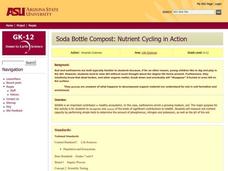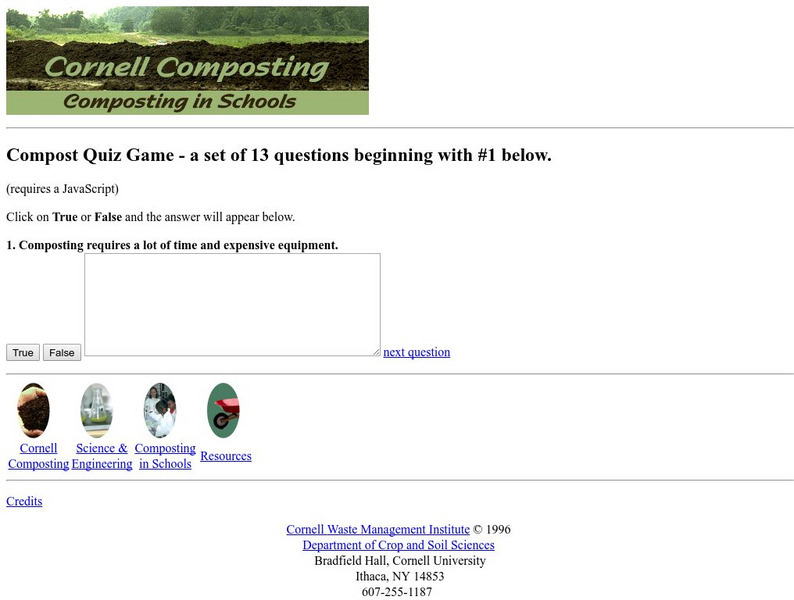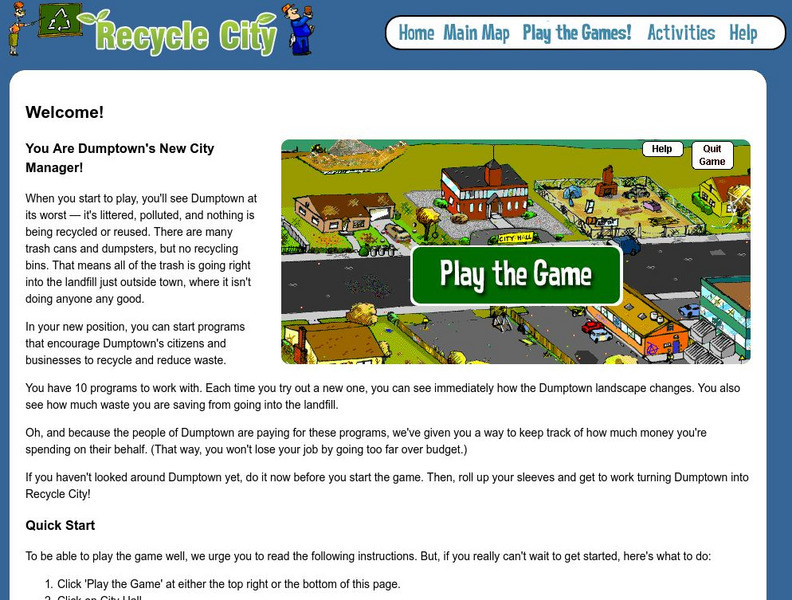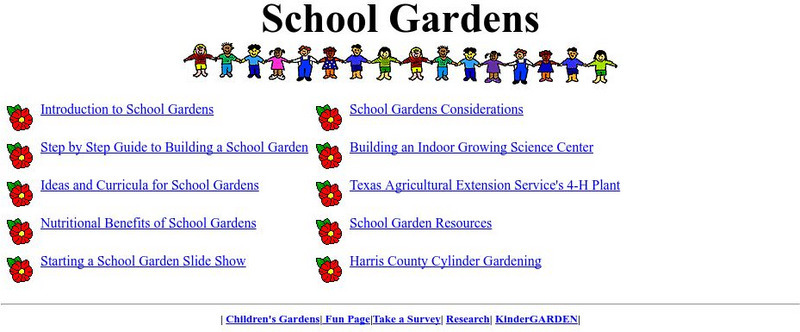Curated OER
Recycling by Composting
Students examine the idea of recycling by composting. Using the internet, they research the benefits of composting to the environment. In groups, they collect numbers on how much food and yard waste is produced in their community. ...
Curated OER
Sustainable Agriculture
Students perform an experiment to find out if plants grow best when grown in soil with no fertilizer, with chemical fertilizers, or with compost that they have made themselves. Students discover how agriculture practices can benefit the...
Curated OER
Soda Bottle Compost: Nutrient Cycling in Action
Students investigate, through their own experimentation, the important role wildlife play in nutrient cycling. Earthworms and compost are used in this experiment and different experimental setups be evaluated.
Curated OER
What a Waste
Students analyze components of garbage. They collect and sort a few days' worth of garbage. They chart the results of an investigation.
Curated OER
Where Should It Go? Recycle? Compost? Incinerate? Landfill?
Students discuss what happens to trash after it is collected. They sort "clean" trash into groups depending on whether it should be recycled, incinerated, placed in a landfill, composted or if it is something we could avoid using.
Curated OER
Micro-organisms and Human Life
In this biology worksheet, students identify and locate various vocabulary terms that relate to micro-organisms and human life. There are 20 biology terms located in the word search.
Curated OER
The Compost Bucket
Students recognize that plants and soils have a close relationship. They view a photo essay on the common practice and natural process of composting. Afterwards, they observe the process of plant decay over the course of several days.
Curated OER
EcoFluxx
Students describe examples of predator/prey relationships in nature explain how some animals protect themselves from predation better follow all directions presented to them become more flexible, adaptable and literate learners. They...
Curated OER
Recycling Garden Waste
Students experience how to make compost. This lesson is ongoing with periodic checks and maintenance. They select a piece of ground around the school or around their homes to establish a compost pile. Organic materials are utilized...
Curated OER
Classroom Composting
Pupils observe and describe the cyclic nature of life. They identify and appreciate the importance of a balanced ecosystem. Finally, students compare and contrast biodegradable and non-biodegradable resources in nature and describe the...
Curated OER
Investigating the Compost
Students are introduced to the concept of biodegradability. In groups, they use the internet to research the types of materials that affect the process. They collect materials from their local community and develop an experiment to test...
Curated OER
De"compost"ition Activity
High schoolers investigate the decomposition process and the parameters which influence the rate at which it occurs. They design a "controlled" experiment by comparing decomposition rates between two compost piles. Analysis questions...
Curated OER
Selecting Soil Organisms in Compost
Young scholars demonstrate that many of the enzyme systems needed to break down--and therefore clean up-society's wastes already exist in nature among the decomposers. They select the best starch-munching organisms by altering the...
Curated OER
Compost Columns
In this unit of lessons, young scholars examine the role of compost columns and recycling. They create a KWL chart about garbage in Chicago. They also examine life cycles and packaging of everyday products.
Curated OER
Illegal Dumping
Students go on an outing and note garbage near picnic tables. They brainstorm ways to be involved with anti-litter campaigns and write letters to local officials.
Curated OER
A Worm World
Students maintain a compost bin and build a worm observatory. They design experiments relating to worms and record observations in a worm journal.
Curated OER
All Wrapped Up
Students work in teams to identify and sort types of packaging used in food production. They consider ways to reduce the environmental impact of packaging and reflect how consumer choices play a role in trash production.
Curated OER
Where Shoult it Go?
Students label boxes and sort trash into those items that can be recycled, composted, incinerated or taken to the landfill.
Curated OER
Worm Composting: Vermiculture
Students compost in a limited space and describe the decomposing process. Students convert unwanted, organic matter, particularly food scraps and paper into fertile soil.
Cornell University
Cornell University: Cornell Composting: The Science and Engineering Composting Composting
This clickable web page is like an outline that comprehensively covers the science of composting. Each link takes you to another section of notes.
Cornell University
Cornell University: Cornell Composting: Compost Quiz Game
Here are thirteen questions with complete explanations to see how much you know about composting.
Cornell University
Cornell University: Cornell Composting: Why Composting?
This article describes the advantages and opportunities that can be utilized by composting in schools. Biology, chemistry, and physics can all be explored with simple schoolyard composting.
US Environmental Protection Agency
Epa: Dumptown Game
This fun game helps students learn ways to recycle, reduce waste, and compost. You can also create your own Recycle City Scavenger Hunt.
Texas A&M University
Aggie Horticulture: Kinder Garden: School Gardens
Get all the information needed to begin and maintain a school garden and a composting program. Features include step-by-step slide shows for creating a school garden or compost program.

























